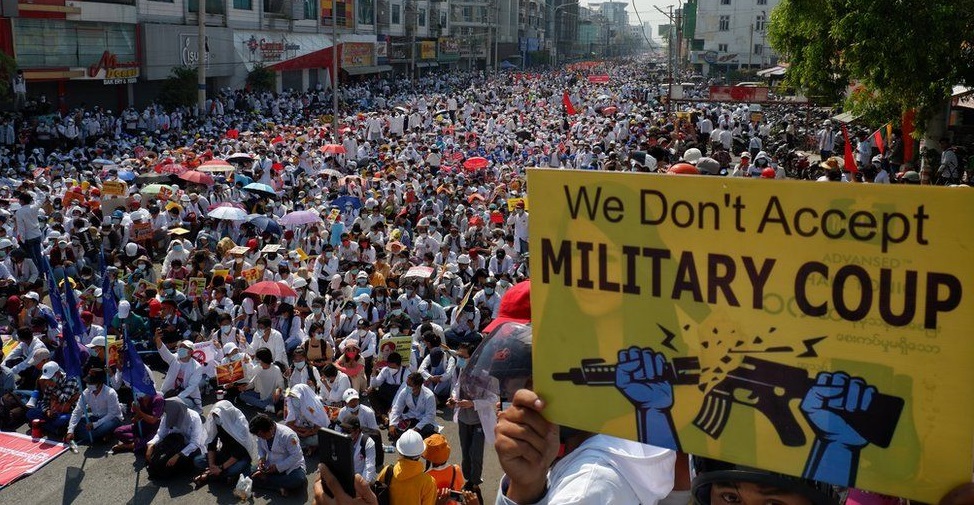
Feb 1, 2024 | Advocacy, News
As the absolute military rule enters its fourth year with an extension of the state of emergency, widespread and systematic human rights violations continue to be perpetrated daily against large number of peoples in communities throughout Myanmar with impunity, the International Commission of Jurists (ICJ) said today.
Arbitrary arrests and detentions and unsound convictions
Widespread gross human rights violations, many of which amount to crimes under international law, have taken place in a climate of near absolute impunity, with rampant arbitrary arrests, torture, detention and convictions for political reasons.
“Respect for human rights and the rule of law has disappeared three years after the coup d’état,” said Melissa Upreti, ICJ Regional Director for Asia and the Pacific. “The military junta has continued committing gross human rights violations, including by arbitrarily arresting, detaining, torturing and summarily executing those who have dared to oppose their illegitimate regime.”
The military junta has effectively weaponized its all-encompassing control over the legal and administrative system, with main targets including real or perceived political opponents, such as former government officials, human rights defenders, lawyers, journalists and ethnic and religious minorities.
Credible information indicates that at least 25,000 individuals have been arbitrarily arrested and detained since the start of the coup, often solely in relation to their exercise of their right to freedom of expression, peaceful assembly and association. Around 8,000 have been convicted based on spurious charges, and at least 119 political prisoners remain on death row.
These figures are a grim reminder of the extent to which the rule of law has completely collapsed in Myanmar. The convictions of people for political reasons have taken place in proceedings that flagrantly violate the essential fair trial and due process guarantees established under international law:
- Many have been summarily tried and convicted in closed-door proceedings either in civilian courts located in prisons, or in military courts;
- Lawyers have been obstructed from meeting and representing detainees, and have themselves been subject to arbitrary arrests and detention in relation to their work;
- Convictions are typically based on spurious and unsubstantiated charges, and “confessions” that were reportedly obtained through torture and cruel, inhuman or degrading treatment have been unlawfully relied on in these convictions; and
- Other violations include the suspension of habeas corpus; and particularly for closed-door military tribunal proceedings, violations of the right to be present at one’s trial, the right to be represented by counsel and the right to appeal.
Prison conditions and treatment of detainees
“Detainees are being held in prisons and detention facilities in horrific conditions that run afoul of international law and standards governing the treatment of prisoners. Violence, much of which amounts to torture, is a daily reality for detainees, with women and LGBT detainees being subjected to targeted forms of cruelty and abuse, as a form of punishment and to instill fear. Unlawful deaths in custody are a common occurrence and remain unaccounted for,” added Upreti.
There is credible evidence that detainees are being subjected to severe beatings with sticks, wire ropes and guns, electrocution, mock execution, and burying alive. Women and LGBT detainees have reported cases of rape, invasive strip searches, sexual harassment and mutilation of genitalia.
Furthermore, reports have emerged of the severe overcrowding, poor hygiene and sanitation, lack of access to healthcare and insufficient food in detention facilities. There are also credible reports of religious minorities being prohibited from practicing their religion while in detention.
Continued failure to restore democratic institutions and violence against civilians
These widespread systematic human rights violations are taking place against the backdrop of the military extending its unlawful declaration of a state of emergency on 31 January 2024 and prolonging its unlawful, arbitrary and abusive exercise of authority. This reneges on its promise to hold national elections in August 2023, which, even if they had been carried out, would likely have been shambolic amidst the ongoing crackdown on perceived political opponents.
Numerous separate armed conflicts continue to rage within the country, involving the Tatmadaw (Myanmar’s army) and anti-military armed groups. In carrying out its military operations, the military has unlawfully attacked civilians taking no part in hostilities, including direct, indiscriminate or disproportionate attacks on civilians and civilian objects from aerial bombings; mass extrajudicial executions of civilians and detained combatants and large-scale and intentional burning of civilian homes and buildings, including religious infrastructure. As noted by the Independent Investigative Mechanism for Myanmar (IIMM), these constitute “strong evidence indicating that serious international crimes are being inflicted against the people in Myanmar”.
Recommendations
“For Myanmar to return to the path of establishing itself as society based on rule of law, human rights and democracy, the first step is to end the state of emergency and all of the unlawful actions of the military regime that flow from it, including the prevailing impunity,” stressed Upreti. “The military regime and its members must be held accountable, the complicity that enables them must end and the human rights of all people in Myanmar must be fully restored.”
The ICJ reiterates its calls on the military to:
- Return the country to a civilian government and restore democracy;
- Immediately cease systematically violating the rights of persons for political reasons, including by releasing all people arbitrarily arrested and detained, and allowing the country’s institutions to function independently and impartially; and
- Immediately cease all practices of torture, extrajudicial killings, arbitrary detention, and flagrant fair trial violations.
The ICJ urges all UN Member States to:
- Keep up its pressure for the peaceful transfer of power to a democratically elected government;
- Increase support for coordinated documentation and accountability efforts by ensuring that the IIMM, Special Rapporteur on the situation of human rights in Myanmar and Office of the United Nations High Commissioner for Human Rights are given adequate resources to continue their important functions as effectively as possible; and
- Hold perpetrators of serious crimes under international law accountable, including by exercising universal jurisdiction over these crimes in domestic courts.
Contact
Melissa Upreti, ICJ Regional Director for Asia and the Pacific, e: melissa.upreti@icj.org
Daron Tan, ICJ Associate International Legal Adviser, e: daron.tan@icj.org
Further Reading
ICJ, “Myanmar: Two years after the coup, country further than ever from democracy and the rule of law”, 2 February 2023
ICJ, “Myanmar: A year after military takeover, no rule of law or judicial independence”, 10 February 2022
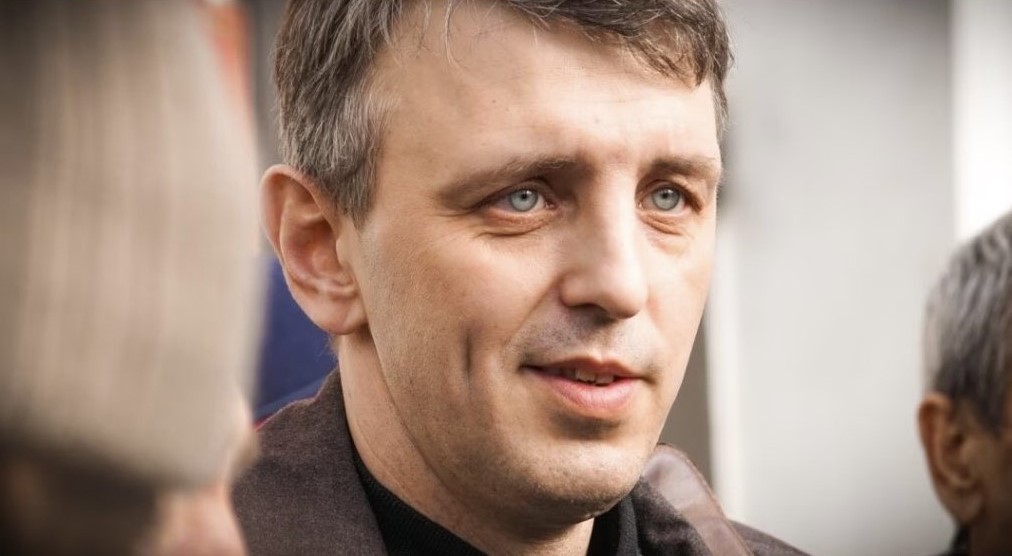
Jan 18, 2024 | News
Lawyers for Lawyers, the International Observatory for Lawyers (OIAD), The Law Society of England and Wales (LSEW), the European Association of Lawyers for Democracy & Human Rights (ELDH), the Union of International Lawyers’ Institute for The Rule of Law (UIA-IROL), the International Bar Association’s Human Rights Institute (IBAHRI), and the International Commission of Jurists (ICJ) condemn the continued harassment against human rights lawyer Aleksey Ladin.
On 24 January 2024, the International Day of the Endangered Lawyer, human rights defender and lawyer Aleksey Ladin will face a disciplinary hearing by the Council of the Tyumen Regional Bar Association. The action was initiated by a motion issued by the Ministry of Justice of the Russian Federation. Mr. Ladin has been working since 2015 to provide legal aid to Ukrainians who are alleged to have been subject to criminal prosecution by Russia on politically motivated charges. Since 2017, he has been based in Russian-occupied Crimea, mostly representing Ukrainian and Crimean Tatar political prisoners.
This is the latest in series of instances of harassment and prosecution from the authorities against Mr. Ladin. On 13 October 2023, the Kyivskyi District Court of Simferopol sentenced him to 14 days of administrative detention for allegedly displaying prohibited symbols on his social media pages. The Facebook post in question, a photo of a drawing made by one of his clients, displayed elements of Ukrainian and Crimean Tatar national emblems with the slogan “We are not the terrorists and we are not the extremists.” The court found the “taraq tamga” (the emblem on the Crimean Tatars’ flag) in the picture to be a symbol of a known Crimean volunteer paramilitary unit, Noman Çelebicihan Crimean Tatar Volunteer Battalion. The drawing had no relation to the battalion. Mr. Ladin was prosecuted for the exercise of his right to freedom expression, protected under international and Russian law.
The upcoming disciplinary hearing is based on the sentence of administrative detention handed down on 13 October 2023, as the Ministry of Justice alleges that Mr. Ladin violated the Code of Ethics of the Russian Bar Association, which is based on the Federal Law “On the Bar Association and its activities in the Russian Federation.” The Ministry of Justice affirms that they received this information from the Centre to Counteract Extremism in Crimea on 3 November 2023.
Lawyers play a vital role in upholding the rule of law and the protection of human rights guaranteed under international law, including the rights to an effective remedy and fair trial guarantees, and the right of freedom from torture and other cruel, inhuman, or degrading treatment or punishment. Their work is indispensable for public confidence in the administration of justice by safeguarding due process rights and ensuring access to justice for all. To fulfil their professional duties effectively, lawyers should be able to practice their profession safely and should be free from improper interference, fear of reprisals, and illegitimate restrictions, in compliance with international standards.
The UN Basic Principles on the Role of Lawyers states that ‘Governments shall ensure that lawyers (a) are able to perform all of their professional functions without intimidation, hindrance, harassment or improper interference; (…) and (c) shall not suffer, or be threatened with, prosecution or administrative, economic or other sanctions for any action taken in accordance with recognized professional duties, standards and ethics’ [16]. They also hold that ‘lawyers shall not be identified with their clients or their clients’ causes as a result of discharging their functions’ [18] and that ‘lawyers, like any other citizens, are entitled to freedom of expression, belief, association and assembly’ [23].
In view of the above, the undersigned organisations call on the Tyumen Regional Bar Association, the Russian Federal Bar Association and the Ministry of Justice of the Russian Federation to:
- Immediately drop the disciplinary proceedings against human rights lawyer Aleksey Lapin, as he is being targeted as a result of his peaceful and legitimate activities;
- Ensure that any legitimate disciplinary proceedings against lawyers shall be conducted fairly and independently, in accordance with international standards;
- Refrain from any actions that may constitute harassment, persecution, or undue interference in the work of lawyers, including disciplinary or criminal proceedings on improper grounds, such as the nature of the cases in which the lawyer is involved;
- Guarantee that all lawyers in Russia and Russian-occupied Crimea are able to carry out their legitimate professional activities without fear of reprisals and free of all restrictions including judicial harassment, arbitrary arrest, deprivation of liberty, or other arbitrary sanctions.
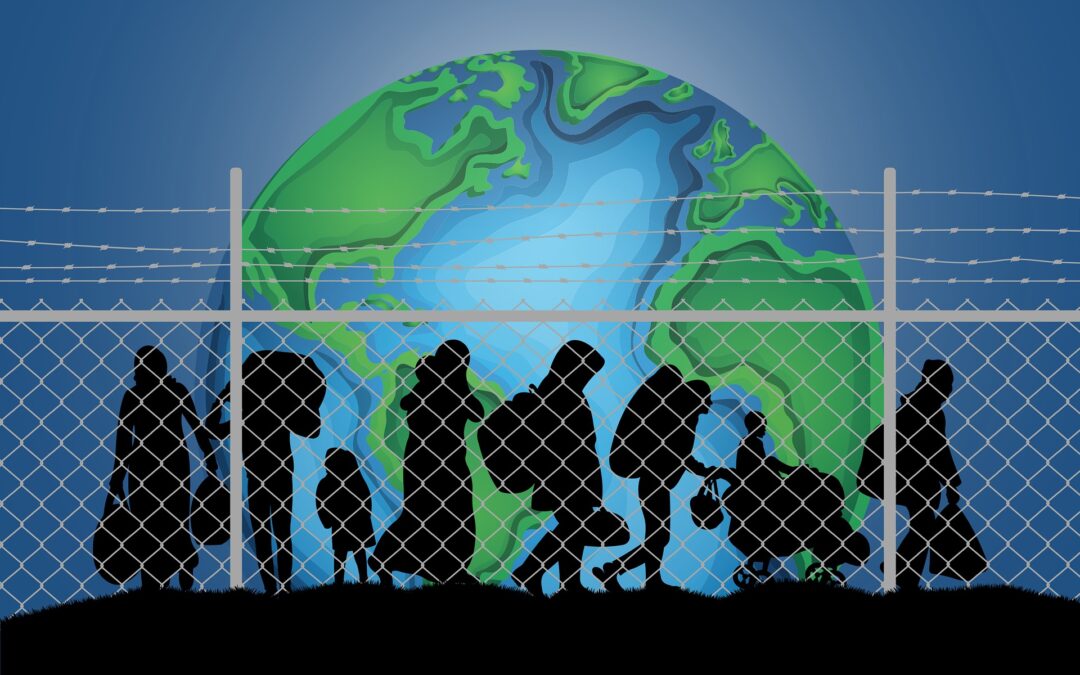
Dec 20, 2023 | Advocacy, News
Today, the ICJ condemned aspects of the agreement reached by the EU Member States and the European Parliament on the last five instruments from the EU Pact on Migration and Asylum, stressing that it will effectively strip away core human rights and refugee protections for persons from vulnerable populations.
The ICJ calls on the EU and its Member States to adhere strictly to their international legal obligations, particularly under human rights law and refugee law, in implementing any new legislative measures.
The Pact, a major set of legislative proposals on the EU’s migration policy initially proposed by the European Commission in September 2020, aims to update the existing rules of the Common European Asylum System (CEAS), which was renegotiated just a few years prior to this proposal.
« The agreement reached today between the co-legislators, the Council of the EU and the European Parliament sends a worrying signal on the state of EU’s commitment to human rights protection, » said Karolína Babická, Senior Legal Adviser of the ICJ Europe and Central Asia Programme. « Although a final text of the legislative instruments is yet to be seen, the agreement waters down protection and safeguards for the rights of migrants and refugees, that oblige the EU Member States under international law. »
Based on the agreement reached today on the Asylum Procedures Regulation, applicants will not have access to free legal assistance, including in border procedures, as it will only be available for certain persons at the appeals stage, where for many it will be too late. Other points agreed include more fast-track procedures with fewer individual safeguards for the migrants and refugees in question. The Council and the European Parliament also agreed with the proposal of a fiction of “non-entry” to the territory, which is intended have the effect of removing migrants and refugees from the protective of spheres of the state on the grounds that they are not really in the country.
« These are in breach of international human rights standards and rules on jurisdiction and will lead to more administrative detention, which effectively punishes those in most need of protection, » said Babická, « It appears that the instruments are intended to allow for border procedures with nearly no procedural safeguards, resulting in quick deportations. However, even in border zones or transit zones, the State’s human rights law obligations remain fully applicable. »
The asylum border procedure as agreed would apply to asylum seekers who are either “unlikely to be granted asylum”, whose claim is fraudulent or abusive, or who are considered a security risk. This provision undermines the key principle of refugee protection, ensuring an individual assessment of one’s asylum claim. Regardless of the general recognition rate, many individuals are still refugees in need of protection status due to circumstances of their individual case. Equally in assessing whether the application is fraudulent, abusive or potentially a security risk, an individualised assessment must be in place.
Indeed, it is difficult to assess any of the purported criteria without fair hearing based on equal protection and the rule of law.
A further problematic aspect includes the disparate treatment and safeguards for available for children below the age of twelve and those twelve and older. Under the Convention on the Rights of the Child, a child is considered a person under the age of 18 must be afforded the protections due to them. Under these rules, older children would for instance not be exempted from border procedures.
The ICJ has previously warned about harmful provisions in the proposals regarding detention in the Screening and Asylum Procedures Regulation.
The Regulation on Asylum and Migration Management, replacing the current Dublin Regulation, will now exclude the possibility for applicants to be transferred to the Member State where they have a sibling or other family member with a legal residence. This provision seriously worsens the situation of asylum applicants in the EU CEAS so far, in breach of international legal standards, especially the right to family life.
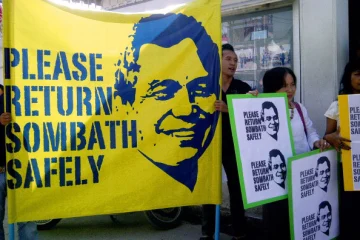
Dec 15, 2023 | Advocacy, News
On the 11-year anniversary of the enforced disappearance of Lao civil society leader Sombath Somphone, we, the undersigned civil society organizations and individuals, strongly condemn the Lao government’s continued failure to provide necessary information as to his fate and whereabouts and reiterate our calls to the authorities to deliver truth, justice and reparations to his family.
International concerns over Sombath’s case, expressed by international civil society, United Nations (UN) human rights experts, and UN member states on last year’s anniversary of Sombath’s enforced disappearance, have been ignored by the Lao government.
On 25 September 2023, in a submission to the UN Human Rights Committee as part of its follow-up review of Laos under the International Covenant on Civil and Political Rights, the Lao government repeated previous misleading statements and miserably failed to provide any additional information on the steps it said it had taken to find Sombath. The government claimed it “never stopped trying to find the truth” about Sombath’s fate “in order to bring the offender(s) to justice.” In reality, the Lao authorities have continued to disregard Sombath’s wife, Shui Meng Ng, and have not provided her with any updates on her husband’s case since 2017. The government then made the extraordinary assertion that its Task Force’s investigation had been “carried out on the basis of transparency, impartiality and accountability, including the use of modern investigative techniques consistent with international standards by the capable inquiry officials.” It concluded that the case of Sombath needed “more time for investigation” and added that the Task Force was “still active in the investigation” and had “not yet closed the case.”
These government statements are unequivocally false in suggesting any degree of transparency. Existing evidence is clear that the Lao government has been engaged in a continuous cover-up of the facts of Sombath’s case since he was forcibly disappeared in 2012, including providing misleading information about its actions to his family, the Lao public, and the international community, as stated above.
We deplore the unmistakable pattern of inaction, negligence, and obfuscation that various Lao authorities have repeatedly engaged in for more than a decade and we continue to resolutely stand in solidarity with Sombath’s family and all other victims of enforced disappearances in Laos.
We reiterate our calls on the Lao authorities to take real and effective measures to establish the fate or whereabouts of Sombath and all other victims of enforced disappearances in the country, identify the perpetrators of such serious crimes, and provide victims with an effective remedy and full reparations. We also urge the government to immediately ratify without reservations the International Convention for the Protection of all Persons from Enforced Disappearance, which it signed in 2008, and to fully implement it into national law, policies, and practices.
As upcoming chair for the Association of Southeast Asian Nations (ASEAN), Laos will be placed in a strategic position to lead the regional efforts to strengthen, promote, and protect human rights. However, its continued failure to act on Sombath’s enforced disappearance sends a message of inadequacy to head the regional bloc and to fulfill ASEAN’s purpose under Article 1(7) of the ASEAN Charter, which is to strengthen democracy, enhance good governance, and the rule of law and to promote and protect human rights and fundamental freedoms.
We will continue to seek justice and accountability for Sombath. Until the truth is found and justice is delivered to his family, we will not stop demanding answers from the Lao government to the same question we have been asking for the past 11 years: “Where is Sombath?”
Background
Sombath Somphone, a pioneer in community-based development and youth empowerment, was last seen at a police checkpoint on a busy street of Vientiane on the evening of 15 December 2012. Footage from a traffic CCTV camera showed that police stopped Sombath’s vehicle at the checkpoint and that, within minutes, unknown individuals forced him into another vehicle and drove him away in the presence of police officers. CCTV footage also showed an unknown individual arriving and driving Sombath’s vehicle away from the city center. In December 2015, Sombath’s family obtained new CCTV footage from the same area and made it public. The video shows Sombath’s car being driven back towards the city by an unknown individual.
For further information, please visit: https://www.sombath.org/en/
List of Signatories
Organizations:
- Alternative ASEAN Network on Burma (ALTSEAN-Burma)
- Amnesty International
- Armanshahr Foundation | OPEN ASIA
- ARTICLE 19
- Asia Democracy Network (ADN)
- Asia Europe People’s Forum
- Asian Cultural Forum on Development (ACFOD)
- Asian Forum for Human Rights and Development (FORUM-ASIA)
- AWAM Pakistan
- Banglar Manabadhikar Suraksha Mancha (MASUM)
- Boat People SOS
- Cambodian Human Rights and Development Association (ADHOC)
- Cambodian League for the Promotion and Defense of Human Rights (LICADHO)
- Campaign Committee for Human Rights (CCHR)
- Campaign for Popular Democracy (CPD)
- Center for Prisoners’ Rights (CPR)
- Centre for Civil and Political Rights
- CIVICUS: World Alliance for Citizen Participation
- Commission for the Disappeared and Victims of Violence (KontraS)
- Committee of the Relatives of the May 1992 Heroes
- Community Resource Centre (CRC)
- Cross Cultural Foundation (CrCF)
- Dignity-Kadyr-kassiyet
- FIDH – International Federation for Human Rights
- Focus on the Global South
- Fortify Rights
- Fresh Eyes
- Front Line Defenders
- Hawai’i Institute for Human Rights
- Human Rights Alert
- Human Rights and Development Foundation (HRDF)
- Human Rights Commission of Pakistan (HRCP)
- Human Rights in China
- Human Rights Lawyers Association (HRLA)
- Human Rights Watch
- Indonesia Legal Aid Foundation (YLBHI)
- INFORM Human Rights Documentation Centre Sri Lanka
- Informal Sector Service Center (INSEC)
- International Campaign for Tibet (ICT)
- International Coalition Against Enforced Disappearances (ICAED)
- International Commission of Jurists (ICJ)
- International Rivers
- Internet Law Reform Dialogue (iLaw)
- Judicial System Monitoring Program (JSMP)
- Karapatan Alliance Philippines
- Kazakhstan International Bureau for Human Rights and Rule of Law (KIBHR)
- Korean House for International Solidarity (KHIS)
- Lao Movement for Human Rights
- Law and Society Trust Sri Lanka
- League for the Defence of Human Rights in Iran (LDDHI)
- Madaripur Legal Aid Association (MLAA)
- Malaysians Against Death Penalty and Torture (MADPET)
- Maldivian Democracy Network
- Manushya Foundation
- MARUAH
- National Commission for Justice and Peace (NCJP)
- Odhikar
- Pakistan Kissan Rabita Committee
- People’s Solidarity for Participatory Democracy (PSPD)
- People’s Watch
- Perhimpunan Bantuan Hukum Indonesia (PBHI)
- Philippine Alliance of Human Rights Advocates (PAHRA)
- Progressive Voice
- Pusat Komas
- Refugee and Migratory Movements Research Unit (RRMRU)
- Solidarity for People’s Education and Lifelong Learning (SPELL)
- Stiftung Asienhaus
- Suara Rakyat Malaysia (SUARAM)
- Task Force Detainees of the Philippines (TFDP)
- Thai Lawyers for Human Rights (TLHR)
- Think Centre
- Transnational Institute
- Vietnam Committee on Human Rights (VCHR)
- WOREC Nepal
- World Organisation Against Torture (OMCT)
Individuals:
- Anne-Sophie Gindroz
- David JH Blake
- Nico Bakker
- Randall Arnst
- Shui Meng and Sombath’s family, Vientiane
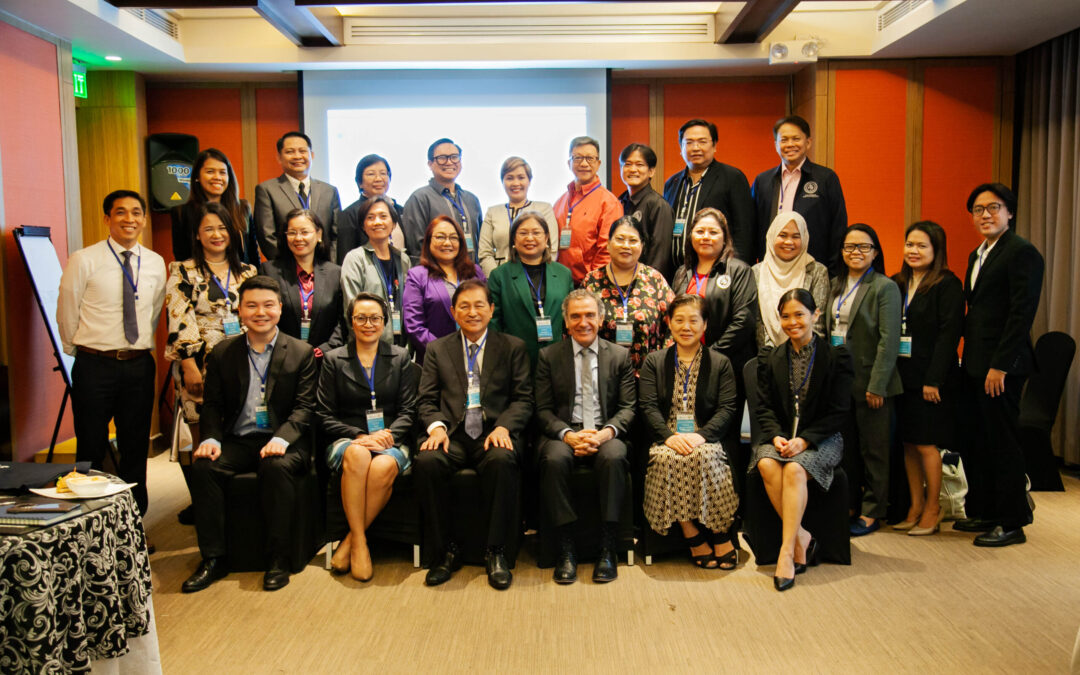
Dec 7, 2023 | Events, News
On 5 – 6 December 2023, the International Commission of Jurists (ICJ) co-organized a workshop, with the Department of Justice (DOJ) of the Philippines, on ensuring the protection of human rights in the online sphere under international human rights law.
The workshop was aimed at enhancing the capabilities of public prosecutors to integrate into their work the relevant international human rights law and standards pertaining to human rights in the online space.
“More than forty percent of our time each day is now spent connected to the internet. This has changed our lives. New technologies have also engendered new challenges for the fulfilment of human rights,” stressed Santiago Canton, ICJ Secretary General, during his opening remarks. “International human rights law provides the framework for us to better understand and respond to these new developments.”
Expert international and Filipino participants reaffirmed the pivotal role that public prosecutors play in protecting and promoting human rights in the digital sphere.
“This workshop was scheduled to coincide with the National Human Rights Consciousness Week in the Philippines, and the inauguration of the DOJ’s Human Rights Office, as part of our efforts to integrate human rights-based approaches into our prosecutorial work,” said Prosecutor Hazel C. Decena-Valdez, OIC Senior Deputy State Prosecutor, Department of Justice, noting the particular timeliness of the workshop in her opening remarks.
Participants raised concerns about human rights violations and abuses perpetrated in digital spaces, including the particular risks experienced by individuals from certain groups, such as children and women.
“The risks of violations or abuses of children’s rights in the digital environment include exposure to unlawful or harmful contents, and online bullying, threats, attacks, punishment, censorship and digital surveillance,” highlighted ICJ Commissioner Mikiko Otani, Former Chair of the UN Committee on the Rights of the Child. “The role of prosecutors in securing the rights of the child in digital environments is very important, by holding perpetrators of violations accountable, and protecting child victims from secondary victimization.”
The participants discussed the numerous challenges they face when prosecuting cases impacting human rights in the digital space, and mapped out how to better integrate international human rights law and standards into their investigatory and prosecutorial work in order to ensure access to justice and effective remedies.
Some of these challenges include how to: handle criminal cases based on domestic laws that conflict with international human rights law; ensure that there is accountability for violations and abuses of human rights online; and prevent biases and stereotyping, such as those based on gender, when investigating and prosecuting cases.
“Prosecutors should ensure that they develop protocols to help eradicate structural gender bias, and ensure gender-responsive approaches to their work. This includes preventing revictimization and ensuring confidentiality when handling cases,” underscored Melissa Upreti, ICJ Regional Director for Asia and the Pacific. “Online violence should not be distinguished as a lesser crime, and the human rights implications of online gender-based violence must be fully recognized.”
Contact
Melissa Upreti, ICJ Regional Director, Asia and the Pacific, e: melissa.upreti@icj.org
Daron Tan, ICJ Associate International Legal Adviser, e: daron.tan@icj.org
Caleen Obias, ICJ National Legal Consultant, e: caleen.obias@icj.org
Background
The workshop was attended by 22 public prosecutors from the Department of Justice.
The key thematic issues discussed during the workshop were:
- The right to online freedom of expression and information;
- Domesticating international human rights law;
- Protecting children’s rights online;
- Protecting women’s rights online; and
- Court technologies, access to justice and impacts on the right to a fair trial.
The speakers at the workshop were:
- Santiago Canton, Secretary General, ICJ;
- Prosecutor Hazel C. Decena-Valdez, OIC Senior Deputy State Prosecutor, Department of Justice;
- Justice Adolfo Azcuna, ICJ Commissioner; Justice, Supreme Court (Ret.); Chancellor Emeritus, Philippine Judicial Academy;
- Mikiko Otani, ICJ Commissioner; Member and Former Chair, UN Committee on the Rights of the Child;
- Melissa Upreti, Regional Director for Asia and the Pacific, ICJ; and
- Atty. Oliver Xavier Reyes, Senior Lecturer, University of the Philippines College of Law.









